News
Places Where Animals Rule The Roost!
15 July 2019
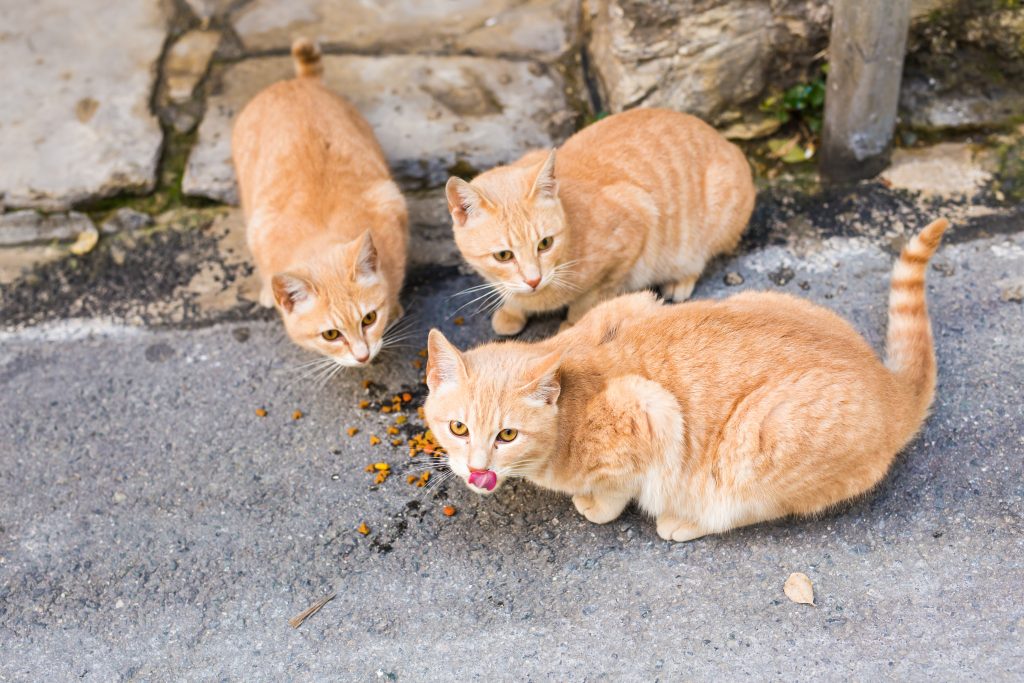
Us Brits are renowned for being animal-lovers, and there are many animal-centred attractions around the world, where you can see exotic species or get closer to them in their natural habitat – by going on safari, visiting an animal sanctuary or going bird-watching, for example – that can make travel an even more unforgettable experience. It’s important to make sure that any animal-based attractions treat the animals well, and that they aren’t mistreated and exploited in order to cut costs or entertain tourists. Many animal-based sanctuaries and attractions treat the animals in their care extremely well, and do a lot to educate the public about them, and help to protect and support endangered species. Check out online feedback and look at Trip Advisor Reviews in order to get a bit of an insight into which attractions care for their animals well, and offer an ethical experience to tourists.
In addition, there are places where a particular type of creature, has either taken over, or become a tourist attraction in their own right, as they are so prolific, or friendly, that they become a magnet for those seeking a fun selfie or the novelty value of visiting somewhere that animals have definitely got the run of the place!
We’ve rounded-up the most iconic and popular places around the world, where you can enjoy exploring a destination famed for its animal inhabitants. Do any of these tourist destinations get you purring in anticipation…?
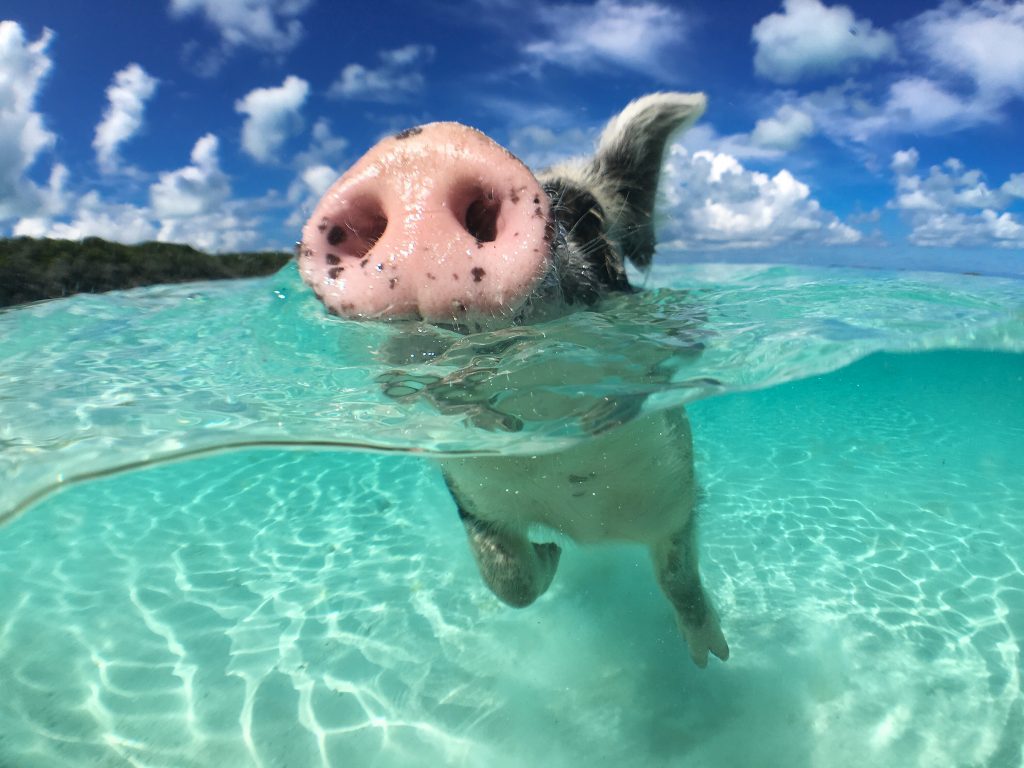
Pig Beach (Exuma in the Bahamas)
Home to the famous (and very cute!) swimming pigs! If you’re staying in Nassau or The Exumas, you can book a day trip to see them. Big Major Cay is uninhabited and the pigs aren’t native to the island, so no-one knows exactly how they came to be there. Rumours include the possibility that they were left by a group of sailors, who planned to come back and eat them, or that they swam over from a nearby shipwreck. There are now about 20 pigs and piglets on Pig Beach, and visitors can feed and swim with them in the crystal-clear ocean. More useful information about visiting Pig Beach.
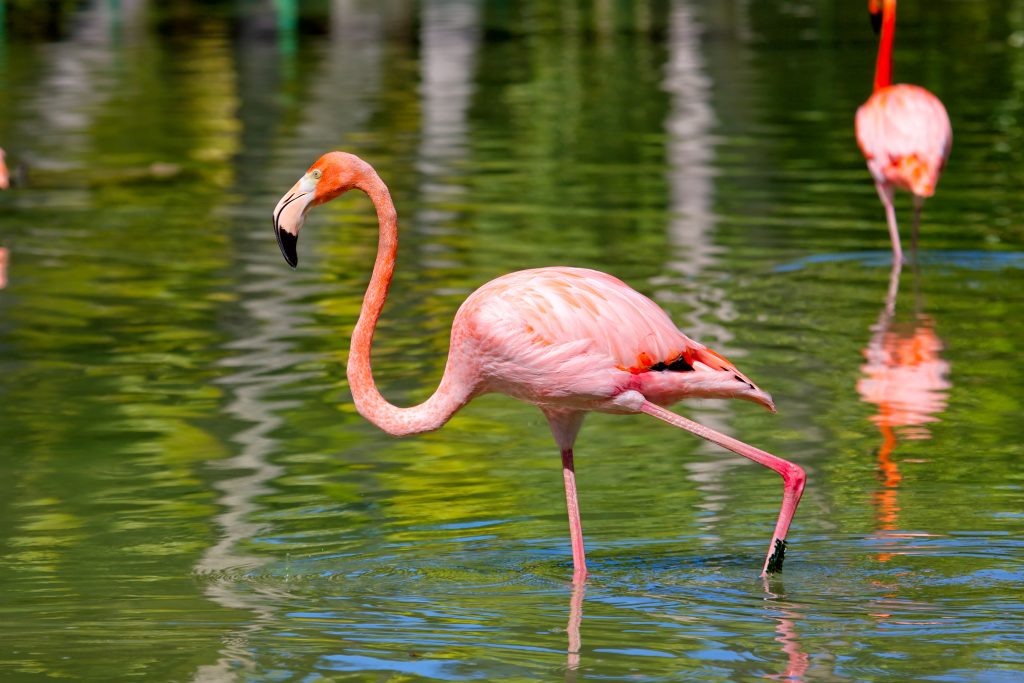
How do you fancy sharing a beach with real flamingos? Not just the inflatable ones for the hotel pool! The candy-pink exotic birds contrast beautifully with the turquoise waters, and provide not just the perfect photo-opportunity, but also the chance to see them so amazingly close-up. The beach is actually based on Renaissance Island , which is owned by the Renaissance Aruba Resort. Guests of the hotel have free access to the beach, non-residents can buy a day-pass if there’s availability – but it isn’t guaranteed.Read the following for lots of useful information and tips for making the most of the experience. Everything you need to know before visiting Flamingo Beach, Aruba.
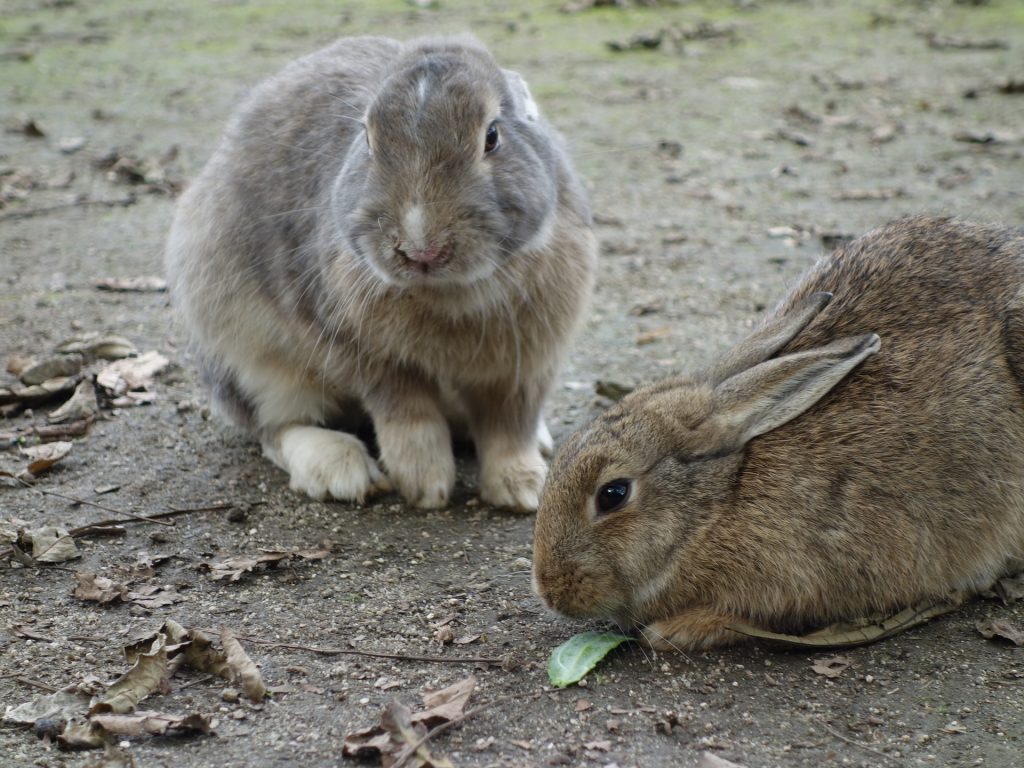
Fancy being besieged by hungry rabbits? Then this could be the ideal place for a day trip or overnight stay! You may have seen the famous photos of tourists being surrounded by hungry and very cute bunniesThe island (Okunoshima) has a dark past, as Japan produced poison gas there during the second world war. No-one is really sure how the rabbits came to have the run of the place in such large numbers. Some believe that the present-day rabbits are the descendants of rabbits that were used to test the poison gas on, or that they were brought over by schoolchildren in 1971, where they bred prolifically. As the island is a predator-free zone (dogs and cats are banned), the number of rabbits may have reached the thousands. Read more here.

This unspoilt nature-friendly beach is also famed for its beautiful feral horses. It is in Virginia, USA and it’s situated on a 37-mile long barrier-island, best known for the herds of wild equines, pristine beaches and the Assateague Lighthouse. The Chincoteague Ponies (also known as the Assateague horse) run free and were made famous by the Misty of Chincoteague series of novels by Marguerite Henry, starting in 1947, and the annual Chincoteague pony swim features over 200 wild ponies swimming across the Assateague Channel into Chincoteague. Find out more here.
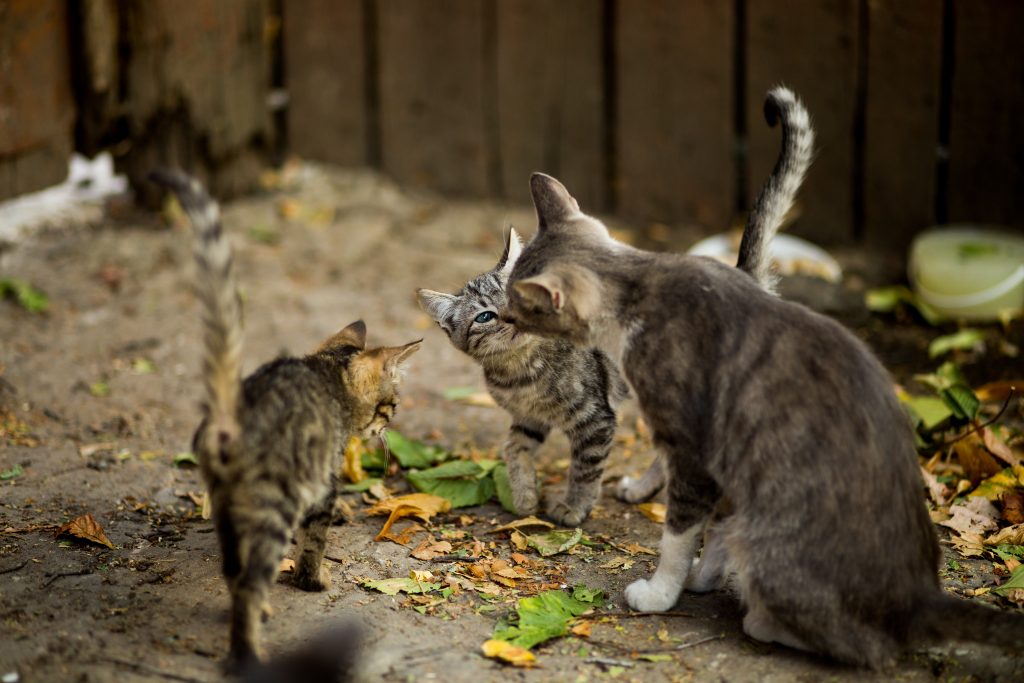
Also known as Tashiro Island in the Miyagi Prefecture, the island is home to very few people, but is also home to several hundred felines, who are cared for and worshipped by the few residents there (there’s even a cat shrine that you can visit!) They were originally imported to help with pest control on the island’s silkworm farms, and the population has grown steadily since then. The island was affected by the tsunami in 2011, which caused partial flooding and destroyed several buildings around the port. The colony of feral cats freely roam the streets and seem to enjoy the interaction with the many tourists who visit to spend time with them. Find out more here.
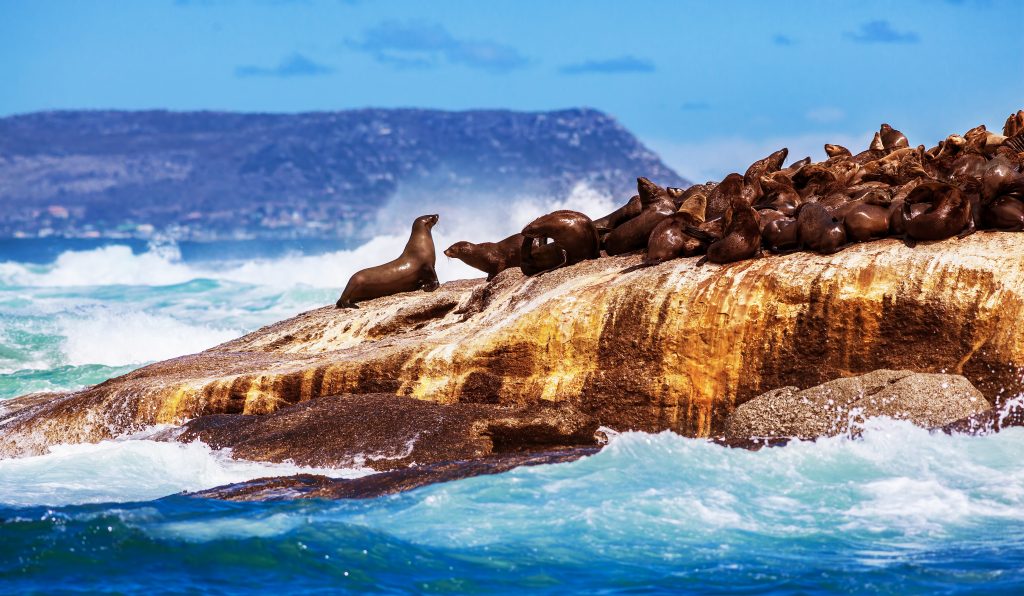
The name says it all – there are seals, lots of them! It is a small land-mass located a few kilometres off the northern beaches of False Bay, near Cape Town, South Africa. It is 5 acres in area and home to 64, 000 cape fur seals. The very small island is uninhabited but you have the choice of taking a range of boat trips around the island, to see the many seals that live there, from the comfort of the boat.
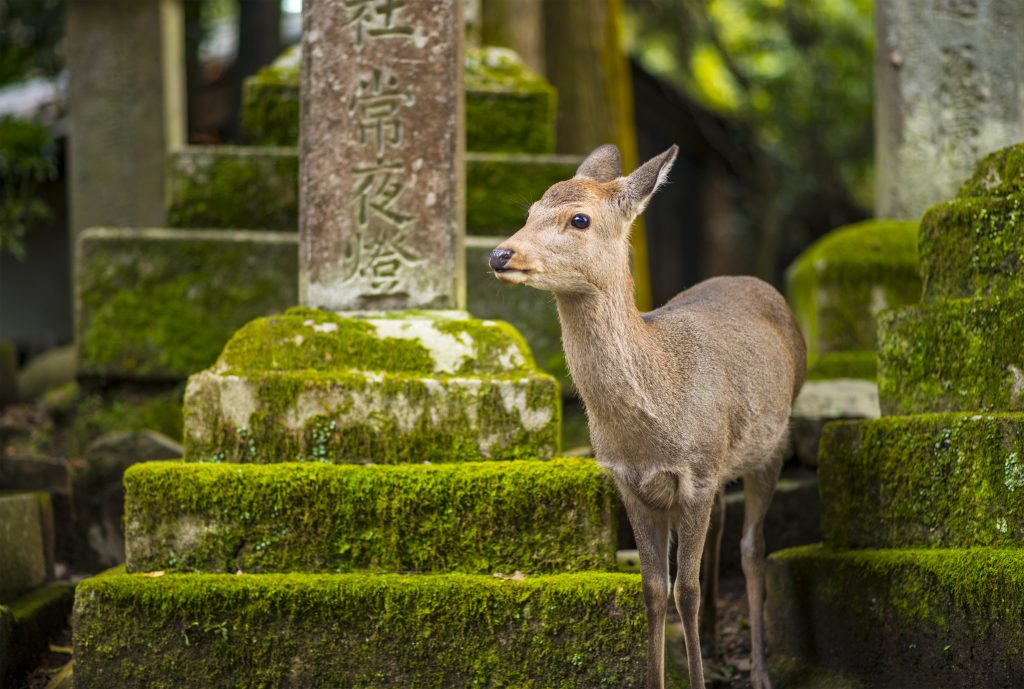
This small island (also known as Miyajima) is a small island in Hiroshima Bay, western Japan. It is known for its forests and ancient temples. Just offshore, the giant, orange Great Torii Gate is partially submerged at high tide. The island is also home to more than a thousand friendly Sika deer. Their population has expanded due to the deer being considered sacred messengers from the gods, and they’re still protected by Japanese law. In contrast to normal wild deer, who don’t relish human interaction, you can easily stroke or feed them. You can find them in the city, the park or even on the beach. Find out more here.
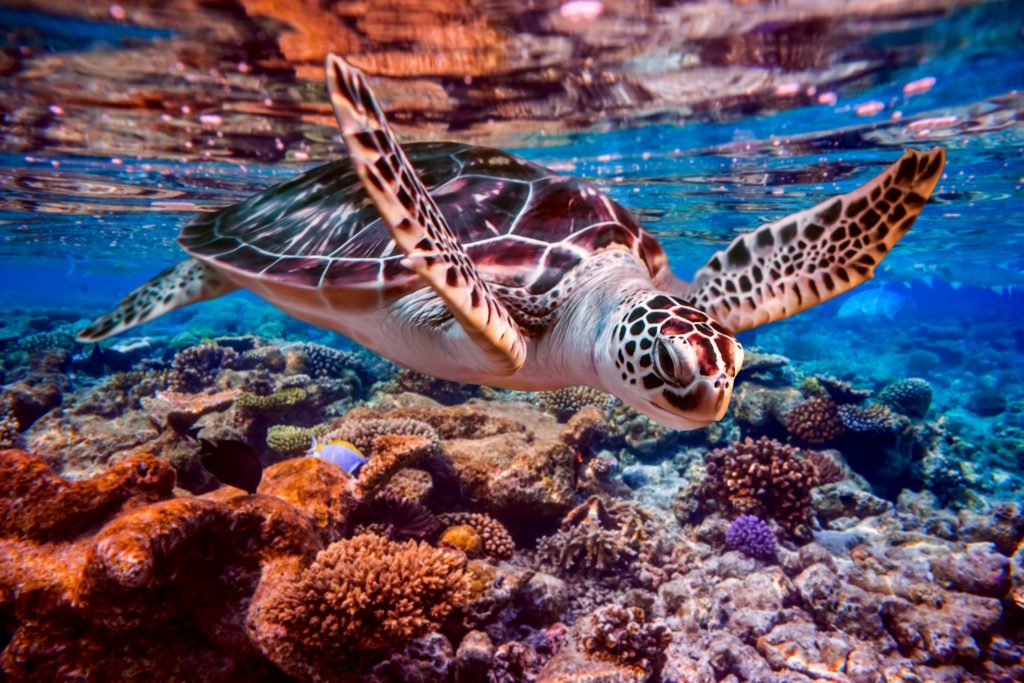
This beach is known as ‘Place of the Turtles’ locally, and is one of the Yucatan’s oldest coastal resort areas. The beach look pretty amazing in pictures (although there’s apparently a problem with seaweed according to recent Trip Advisor reviews). It’s 100km south of Cancun and between the towns of Playa del Carmen and Tulum. The reason the turtles are so easy to see here, are that they stay fairly close to the beach in order to eat the seagrass from the ocean floor, and also, it is handy for nesting. Find out more about swimming with turtles, here.
The above, are a few options for visiting a destination where the creature is definitely king! Obviously, there are a few things to bear in mind to keep you safe, and the animals happy in their home environment:
- Find out whether it’s a good idea to bring certain types of food with you, or whether it is available to buy when you get there. Remember that animals can sometimes be very assertive or even aggressive when looking for food, and always approach with caution, making sure that you adhere to local advice and signage.
- As some of the locations are quite remote and/or undeveloped with few people living there – there may be a lack of tourist facilities such as cafes and hotels – so do your research in advance, including working out the logistics of getting there.
- There may not be a specific charge for visiting an area, but consider making a donation to any charities that exist to help care for the animals, to hopefully keep them healthy, happy and well-protected.
If you’re heading off to one of these destinations where animal-magic rules, please feel free to get a quote for one of our comprehensive travel insurance policies, for complete peace of mind: Get a quote.
If you’re going to be taking part in an activity such as camel or elephant trekking, , horse riding, husky dog sledding or a safari, make sure that you check our Activity Packs to make sure you have the cover you need (you’re covered for every activity in Pack 1 as standard).
If you’re heading away to work with animals, our Working Holiday policy is perfect. We can cover you for everything from working in a turtle sanctuary to working with elephants or tigers, either on a paid or voluntary basis.
If you’d like a quote, please use the links above, give us a ring on 01424 223964 (Monday to Friday 9am to 5pm) or complete a quote request form and we’ll email one over: http://go-walkabout.co.uk/quote_request.php
Related posts
We’re all going on a working holiday!
12 July 2012Read more
Places to Visit | Travel NewsLondon is the most highly-rated city destination
30 July 2012Read more
Misc | Special EventsA Travel Insurance Policy for Father Christmas
3 December 2012Read more
CompetitionsHidden Gems Travel Competition Entries
7 March 2013Read more